
Sri Lanka has the luxury of not being spoiled for choice when it comes to participating in the global artificial intelligence (AI) boom. While it may not have, for example, India’s technological infrastructure, it is also not burdened by the competing interests of larger populations. As such, a strategic and focused approach could benefit Sri Lanka more than an attempt to follow in the shadow of other nations. The Road to AI – Assisted Governance
2025
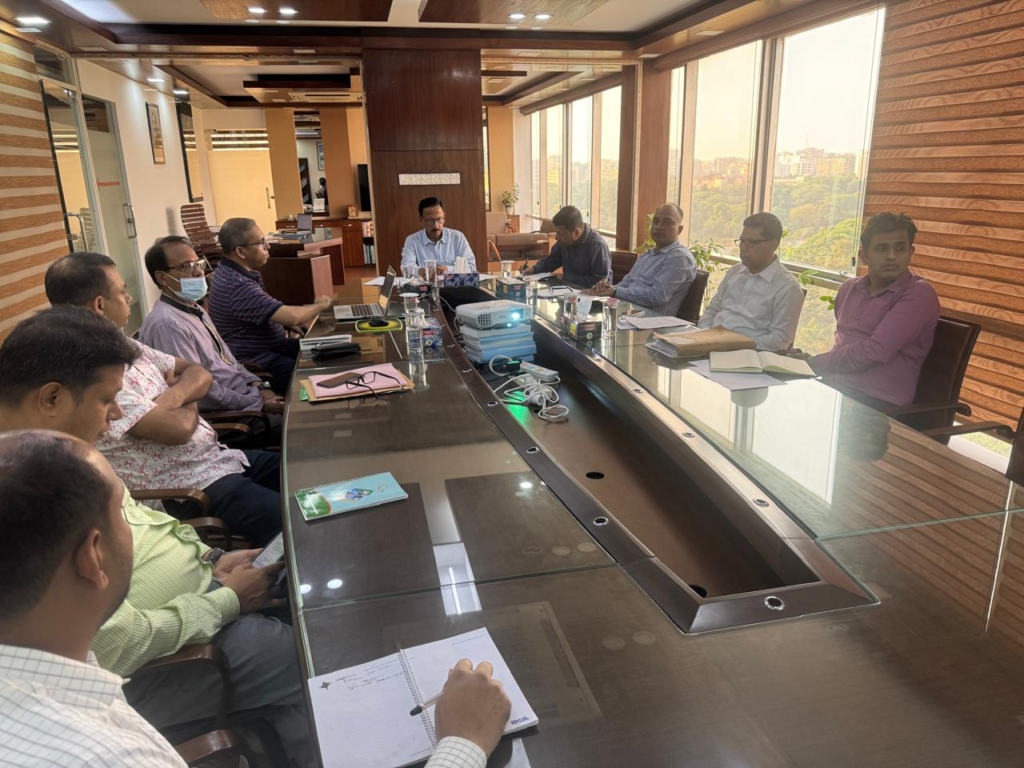
Following a meeting with the BEPRC Chairman and senior officials on November 13, 2024, another meeting was held on December 29, 2024, at the BEPRC Chairman’s office. Attendees included Mohammad Wahid Hossain, ndc (Chairman and Senior Secretary), Dr. Md. Rafiqul Islam (Member, Innovation), Mohammad Mizanur Rahman Bhuiyan (Director, Admin and Finance), Dr. Hasan Mahmud (Director, Innovation), and representatives from the DnD Lab: Professor Moinul Zaber (PI and Director), Dr. Tanvir Rumee (Associate Professor and Co-PI), CS Roy (Senior Policy Fellow), and Md. Tariqul Islam (Head of Coordination).
The discussion focused on advancing the ongoing project, Improving Quality of Power Supply to the Industrial Clusters around Dhaka City. Both parties underscored the importance of ensuring the project’s successful completion.
2025
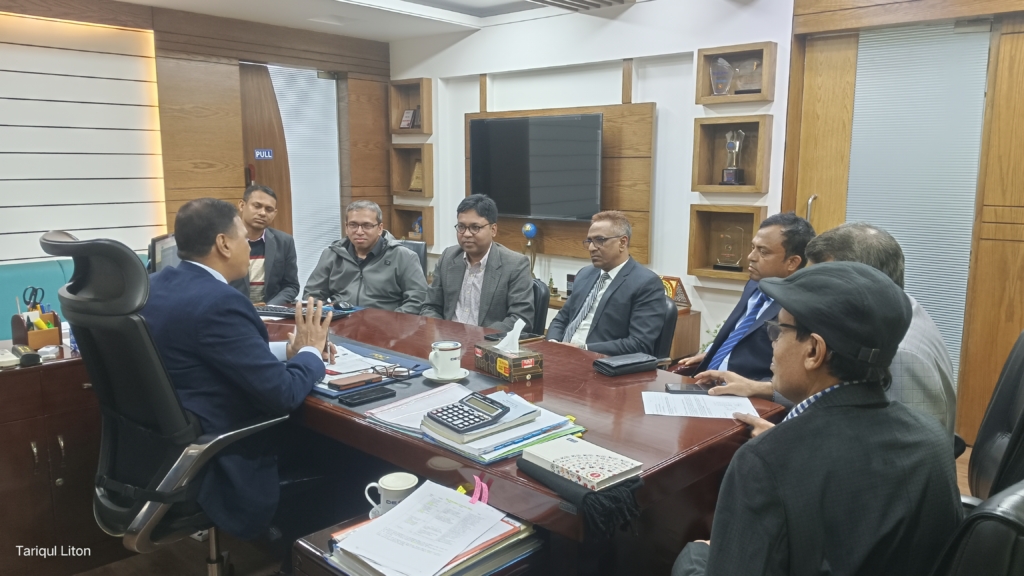
A productive meeting between DESCO and the Data & Design Lab (DnDLab) of Dhaka University was held on January 2, 2024, at DESCO’s Head Office, Nikunja 2, Khilkhet, Dhaka. Both organizations agreed to collaborate closely, focusing on delivering enhanced quality services for DESCO customers..
Participants from DESCO included Brig. Gen. Shameem Ahmed (Managing Director), Md. Tofazzal Hossain (Joint Secretary & Executive Director, Admin & HRM), Md. Kamrul Islam (Executive Director, F&A), and Engr. Md. Shariful Islam (Executive Director, Operation). From DnDLab, Professor Moinul Zaber (Director), Dr. Tanvir Rumee (Associate Professor & Assistant Director), CS Roy (Senior Policy Fellow), and Md. Tariqul Islam (Head of Coordination) were present.
2025
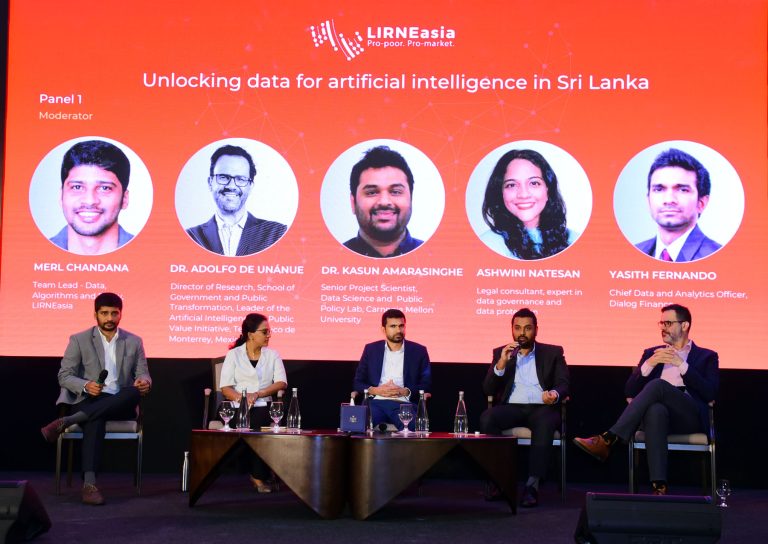
Data-driven approaches in Bangladesh have successfully addressed electricity challenges, according to Professor Moinul Zaber from the United Nations University. Speaking recently in Colombo at a forum hosted by LIRNEasia, titled “Unlocking Data for Artificial Intelligence in Sri Lanka”, Prof. Zaber explained how data collection and analysis transformed energy service efficiency in Bangladesh.
Read more at https://ceylontoday.lk/2024/12/10/energy-challenges-addressed-through-data-driven-insights/
2024

A recent study has unveiled a new tool that helps users better understand the complex privacy terms hidden in software license agreements. Researchers used natural language processing to highlight key privacy-related clauses, conducting experiments with 173 participants that showed significant improvements in users’ comprehension of data collection and security terms. The innovative nudge tool is now freely available, aiming to empower users to make more informed decisions about their digital privacy.
Read more at https://www.dndlab.org/eula-analyzer/
2024

On October 11, Dr. Moinul Islam Zaber joined Ernesto Brodersohn and other experts in a panel discussion on artificial intelligence’s impact on social security systems at the CISS High-Level Dialogues, held under the theme “Towards a Global Vision of Social Security”. Dr. Zaber highlighted AI’s transformative potential to make social security management more efficient, predict needs, and cut costs.
In his address, Dr. Zaber stressed the importance of countries developing independent AI capabilities to retain control over AI applications in social security, helping them counter potential regulatory pressures from big tech. He advocated for systems that are technologically advanced yet remain ethical, inclusive, and sustainable. The session also covered broader global challenges, including digital health and climate change, emphasizing a holistic approach to social security in the future.
Recording of the conference is available at https://youtu.be/Bi_1VQiZFxs?t=2034.
2024
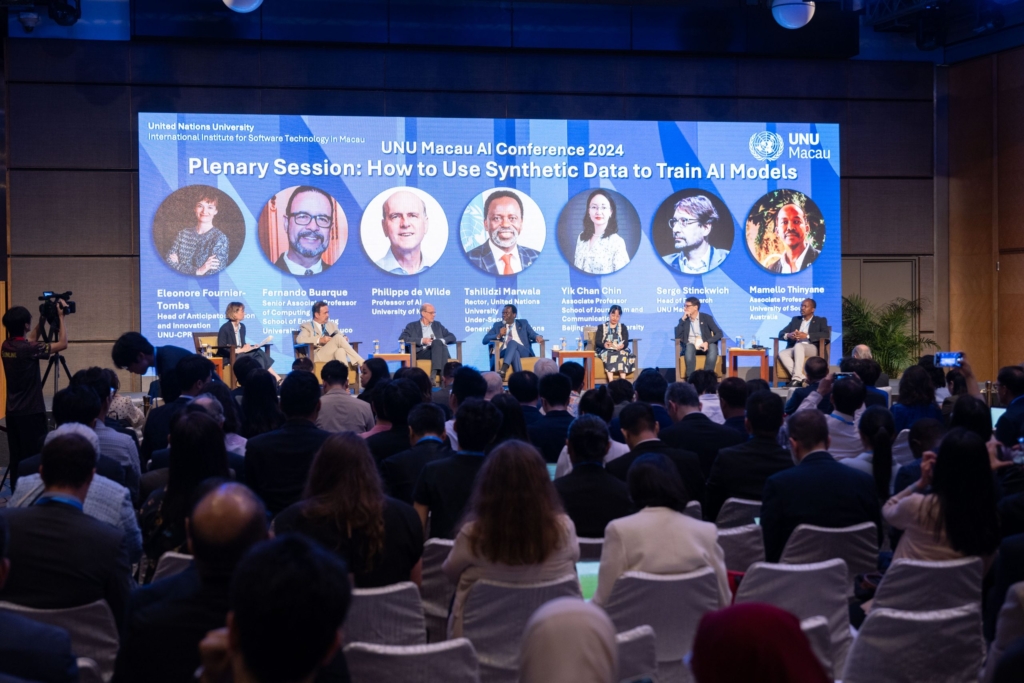
A panel discussion on “Integrating AI with complex systems modeling to achieve the SDGs” was held at the UNU Macao AI Conference 2024 on April 24-25 in Macao SAR, China. The panel featured Professor Dr. Moinul Islam Zaber addressing “AI for Good: Strategies for Responsible and Transparent Development.” This session highlighted the potential of AI in supporting global sustainability goals while emphasizing ethical considerations. With the rise in utilization of AI-based decision-making tools such as ChatGPT to develop or enhance computational models, it is crucial to grasp the challenges and dangers of this amalgamation.
More information about the conference program is available at https://aimacau-2024.org/programme/.
2024
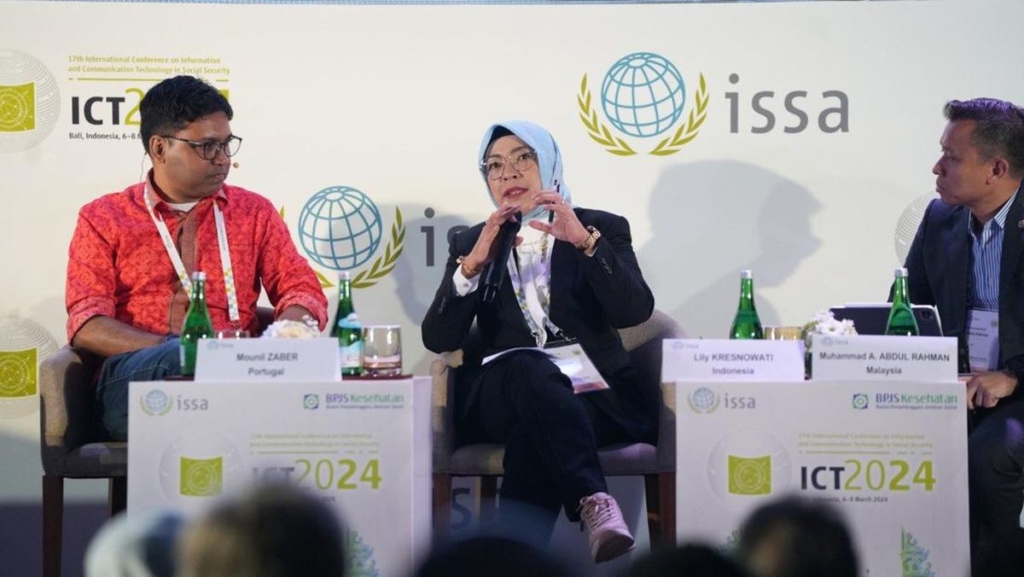
Professor Dr. Moinul Islam Zaber delivered a keynote speech titled “Artificial Intelligence: A Game-changer for Reaching Social Security Objectives” at the 17th ISSA International Conference on Information and Communication Technology in Social Security. The event took place from March 6-8, 2024, in Bali, Indonesia. The presentation explored how AI could revolutionize social security systems and help achieve key objectives.
Further details about the conference program are available on the ISSA website at https://www.issa.int/events/ict2024/programme.
2024

Professor Dr. Moinul Islam Zaber delivered a keynote speech titled “A guideline for using AI by the social security agencies” at the 17th ISSA International Conference on Information and Communication Technology in Social Security, which took place on July 12, 2024, in Geneva, Switzerland. This presentation addressed the growing role of artificial intelligence in social security systems and offered guidance for implementation.
More details are available on the ISSA website at https://www.issa.int/events/ict2024/programme.
2024

Professor Dr. Moinul Zaber spoke at the ISSA webinar “Decoding Artificial Intelligence – Unveiling the Secrets of Explainability” on January 18, 2024. The event, held virtually in partnership with UNU-EGOV, covered AI explainability, comparing transparent models like decision trees with complex “black-box” models such as neural networks. It emphasized accountability, interpretability, and aligning AI with social security goals. The webinar also featured insights from Raphaël Duteau, focusing on improving AI transparency in social security practices.
More information at https://www.issa.int/events/webinar-2024-01-18
2024
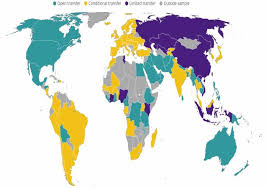
Researchers M. Zaber, I. Rohman, K. Gunawan, and A. Johanes published a paper titled “Cross-Border Data Flow: A Trilemma of Mobility, Monetization, and Privacy” at the 52nd Telecommunications Policy Research Conference (TPRC 52) conference on September 20, 2024, at American University in Washington, D.C. The study explores the complex balance between data mobility, economic potential, and privacy in international data transfer. The paper is now available on SSRN, contributing to ongoing discussions on global data governance and digital sovereignty.
https://papers.ssrn.com/sol3/papers.cfm?abstract_id=4918555
2024
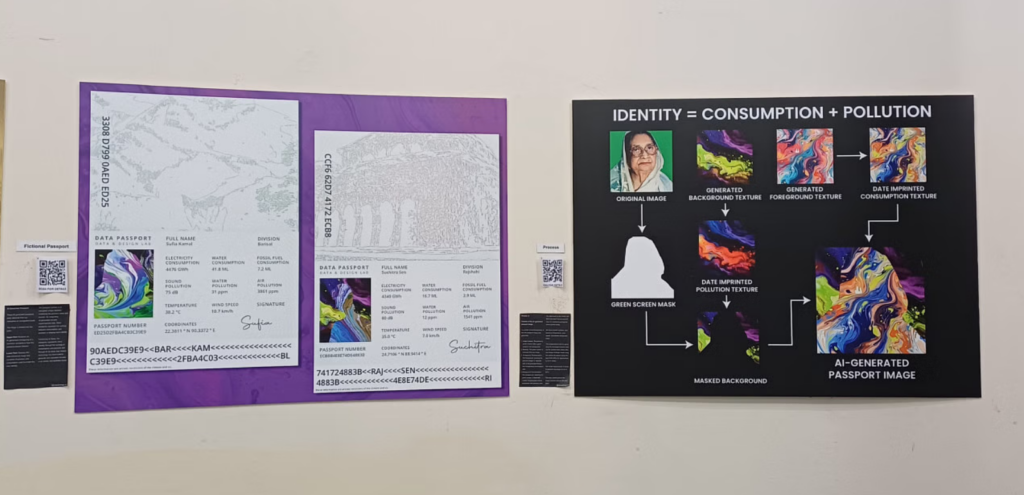
“Identity = Consumption + Pollution,” an AI-driven art exhibition by Azyz Sharafy, visualizes individual environmental impact through AI-generated passports, merging personal consumption data with pollution imagery to promote environmental consciousness. The interactive show transforms abstract data into vivid, thought-provoking art, highlighting the intersection of human behavior and ecological footprints.
The event was featured on The Daily Star, Biggan Chinta.
2024
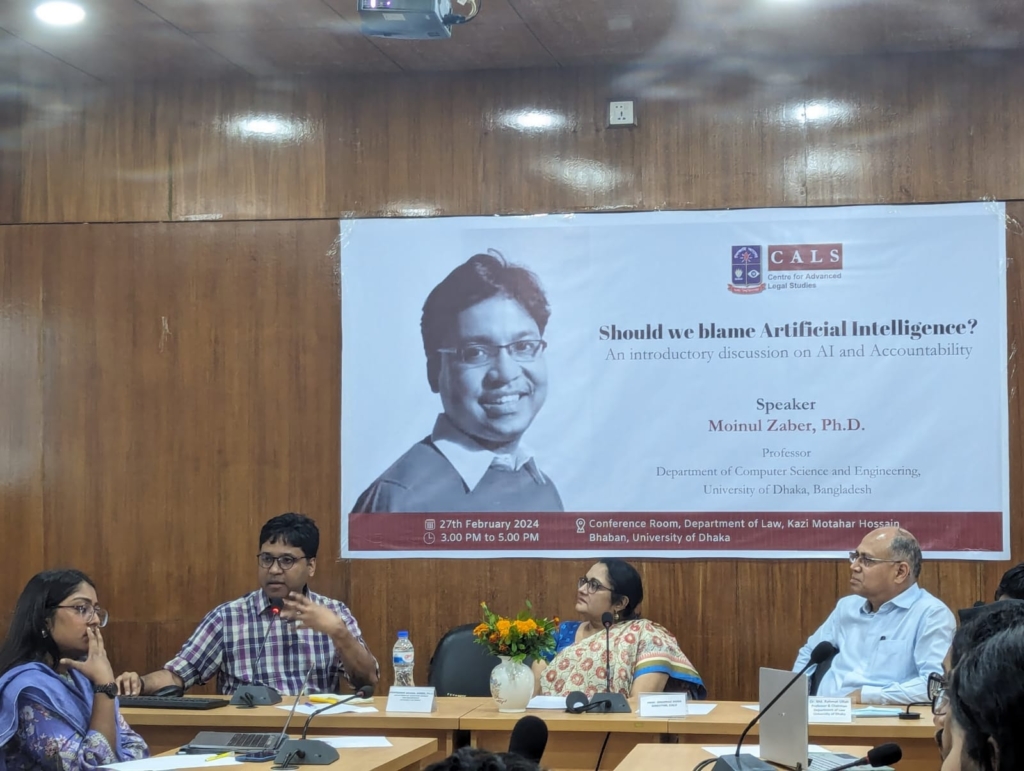
Dr. Moinul Islam Zaber gave a talk at the “Should we blame Artificial Intelligence?” seminar organized by the Centre for Advanced Legal Studies, University of Dhaka, emphasizing the need for directive guidelines over rigid legal provisions in addressing AI accountability. The event, held on 27 February 2024, fostered discussions on the balance between innovation and the legal challenges posed by AI misuse.
The event was featured in The Daily Star.
2024
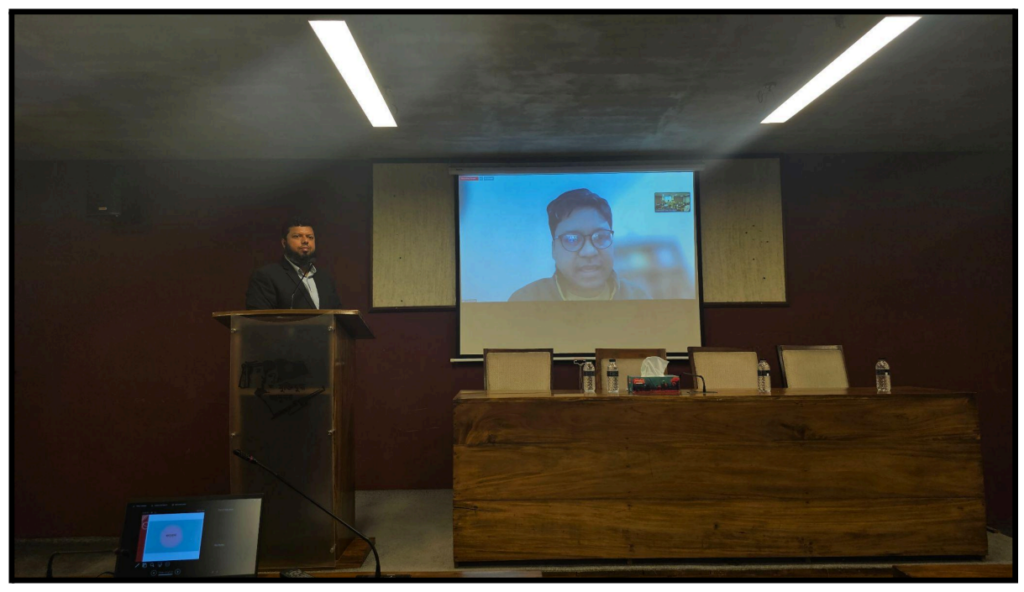
The DnD Lab collaboration with the Liberation War Museum in Bangladesh integrates AI into the national curriculum, transforming history education into an interactive, engaging experience for students and educators alike. This innovative project, involving a dedicated team, signifies a major step in merging technology with education, bringing the nation’s history to life for future generations.
Our Blog Post: https://www.dndlab.org/2024/01/10/dnd-liberation-war/
2024

ISSA Webinar: Decoding Artificial Intelligence – Unveiling the secrets of explainability
Explainability in Artificial Intelligence (AI) refers to having the capability to understand how these systems make decisions or predictions. It is a concept that is key to building trust in the technology, especially with those without a technical background, and to help teams grasp the rationale behind AI predictions and ensure that decisions align with the social security institutions’ objectives.
2024

Speaker, AI and Startup future, Bangladesh startup summit, 2023, Panel Discussion with the Government, Start up and Infrastructure industry leaders Dhaka, Bangladesh, July 29-30, 2023
Fireside Chat, With Jann Talinn, Inventor of Skype, On AI and our future, Bangladesh startup summit, 023, Dhaka, Bangladesh, July 29-30, 2023
2023
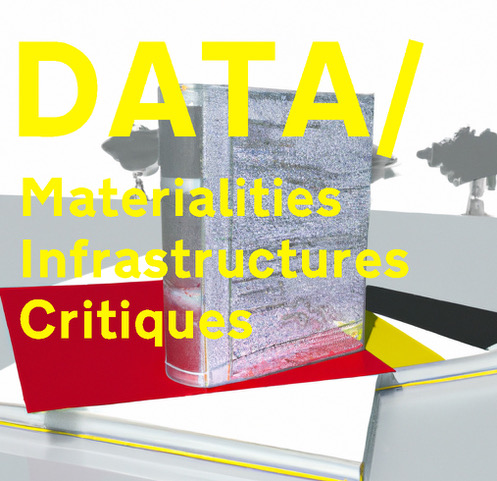
Invited talk, a day-long workshop on Data: Materialities, Infrastructures, Critiques, Cambridge Digital Humanities, University of Cambridge, Cambridge, UK, July 3, 2023
2023

Invited talk, Samos Summit on ICT enabled Governance, Samos, Greece, 26-28 June, 2023
2023

Panel discussant, on AI and Governance, “Moldova Digital Summit: Towards our borderless future “, Chisinau, Moldova, June 15-17, 2023
2023
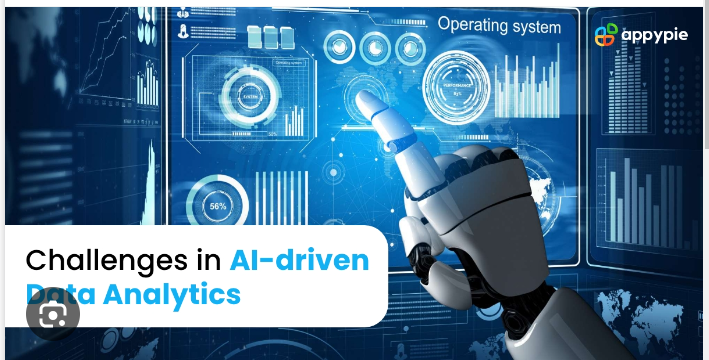
Keynote speech (2023). Data, AI and the challenges of regulatory governance, Bangladesh Telecommunication Regulatory Council (BTRC), May 19, 2023
2023

Lecture on AI for public policy, Digital Government Authority of the Kingdom of Saudi Arabia, May 2-5, 2023, Guimaraes, Portugal.
2023

Invited talk (2023), Deconstructing Chatbots, ISSA webinar on AI (2023), April 20, 2023
2023

Invited Talk (2023), “Covering the last 50%-the role oof 5G spectrum policy intervention”, Pacific Telecommunications Council, Honolulu, Hawaii, 19th January 2023.
2023

Member of Organizing Committee, (International Social Security Agency) ISSA-(E-gov Operating Unit of United Nations University), UNU-EGOV webinar series on AI for social security, September 2022- till date web address.
2022
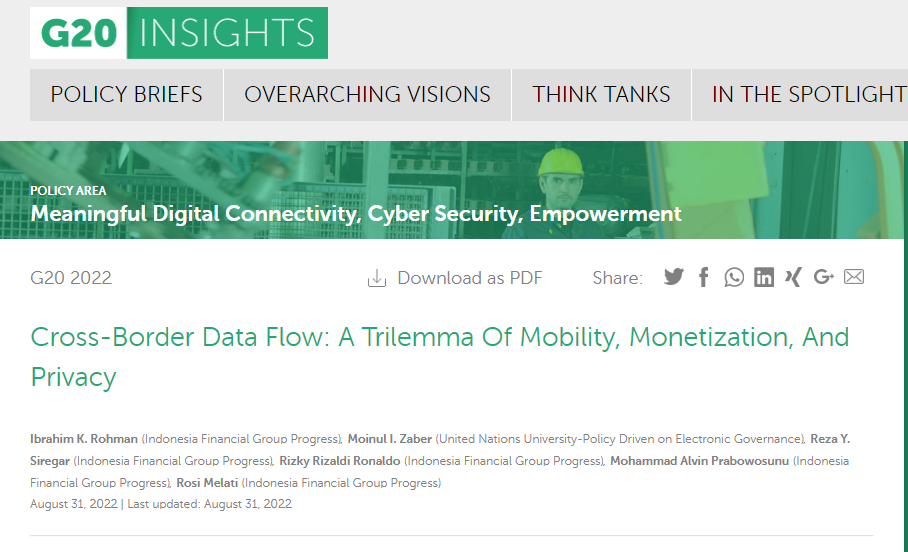
An article has been published named “Cross-Border Data Flow: A Trilemma Of Mobility, Monetization, And Privacy” in the G20 Summit in Indonesia by Ibrahim K. Rohman (Indonesia Financial Group Progress) Moinul I. Zaber (United Nations University-Policy Driven on Electronic Governance) Reza Y. Siregar (Indonesia Financial Group Progress) Rizky Rizaldi Ronaldo (Indonesia Financial Group Progress) Mohammad Alvin Prabowosunu (Indonesia Financial Group Progress) and Rosi Melati (Indonesia Financial Group Progress).
2022
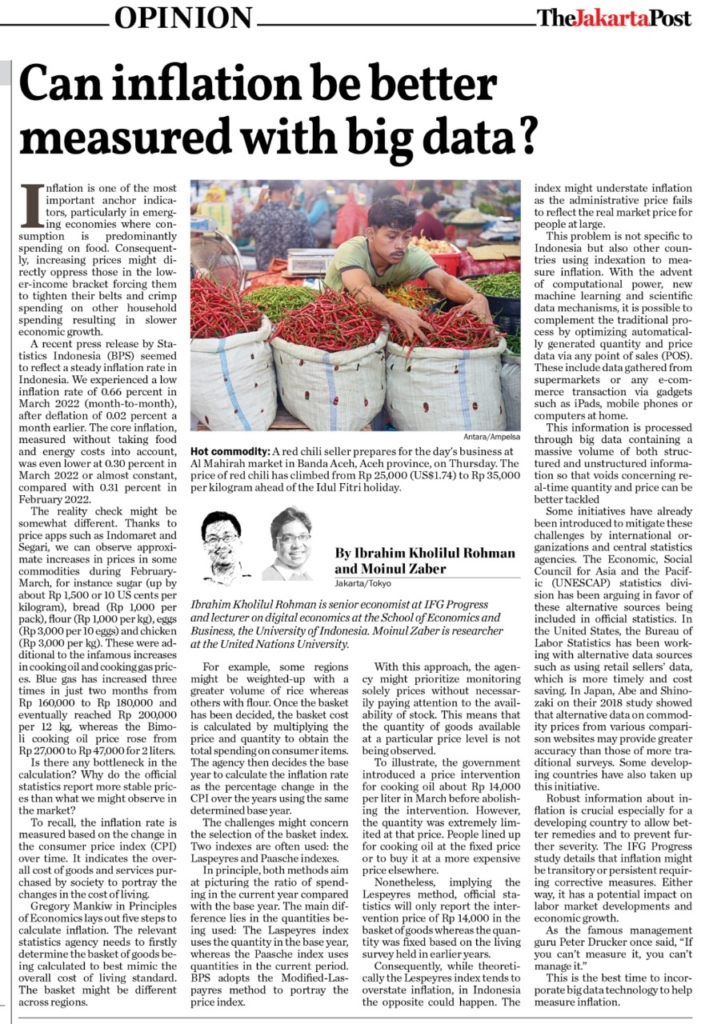
Dr. Zaber and Dr. Rohman’s article has been printed on The Jarkarta Post titled “Can inflation be better measured with big data?“. An snapshot (JPEG) of the print is available on our website or you can read it on The Jarkarta Post if you are already subscribed.
Update (Apr. 21, 2022): This piece has also been published in the Straits Times (Singapore).
2022

Our paper, in collaboration with AgenCy Lab (Independent University, Bangladesh) and Center of Spatial Information Science (University of Tokyo), titled “Understanding the Urban Environment from Satellite Images with New Classification Method—Focusing on Formality and Informality” has been published in Sustainability, MPDI.
2021
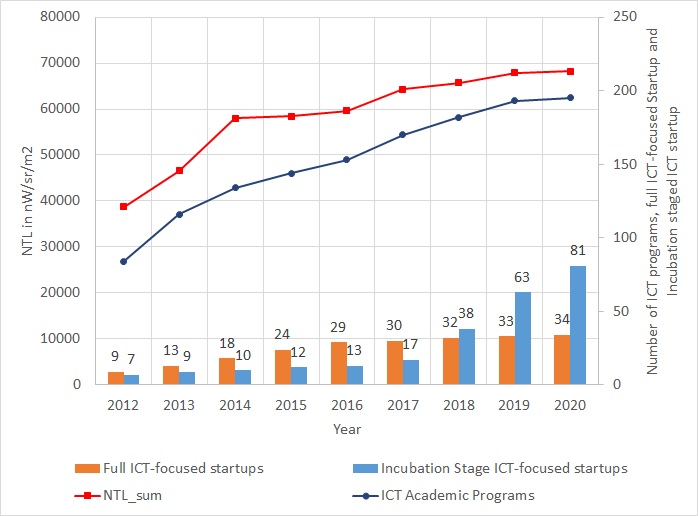
Our paper, in collaboration with University of Texas at Arlington, titled “Does Immergence of ICT Focused Institutions Increase the Pace of Urban Development? A Provincial Case Study in Iran Using Data from the Ground and Above” has been accepted for publication in 2022 IEEE Conference on Technologies for Sustainability (SusTech).
2022

How the arts can help make AI better? Read the latest article from The Daily Star post using this link.
2021

Our paper on “Is My Password Strong Enough?: A Study on User Perception in The Developing World” has been accepted in EAI Endorsed Transactions on Creative Technologies.
For more details, please read our paper.
2021
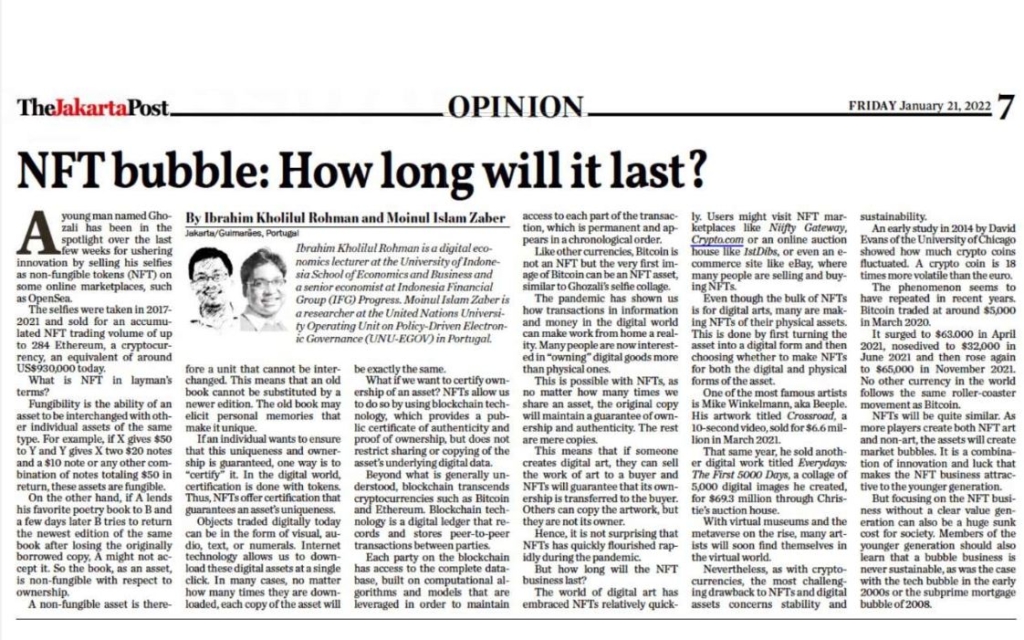
What are the possible consequences for the economy if the NFT bubble gets bigger and wider? We would like to ask folks around to be a bit more cautious! You can find out OpEd piece that was published in Jakarta Post using this link.
2021

Dr. Moinul Zaber article titled “Time to adapt to AI” has been printed in The Daily Star on January 9, 2022.
You can read the e-paper on The Daily Star.
Prof. Moinul Zaber article titled “How can we start the open data revolution?” has been published in The Daily Star. You can read it online on their website on The Daily Star.
Prof. Moinul Zaber writes about the importance of independence to facilitate innovation in the telecom marketplace in his latest article for The Daily Star. You can read it on The Daily Star.
2021

Our paper on “Applying State-of-the-Art Deep-Learning Methods to Classify Urban Cities of the Developing World” has been accepted in MDPI Sensors (IF 3.575), special issue Urban Information Sensing for Sustainable Development. This work is the result of a collaboration between Data & Design Lab, AGenCy Lab (Independent University, Bangladesh) and Center for Spatial Information Science (University of Tokyo).
For more details, please check our paper.
2021

Prof. Moinul Zaber will be joining as one of the speakers for a round table session for “Data-driven governance in the social sector: opportunities and challenges in a changing world” track in ICEGOV 2021 that will be held in Athens, Greece from 6-8 October, 2021.
For more details, please visit here.
2021

Prof. Moinul Zaber’s lecture on “The prospect of Non Traditional Data and Computational Social Science for Sustainable Development” is now available in the WFEO’s website.
2021

Asif Zaman’s paper “Seasonal, Temporal and Spatial Variation of Particulate Matter Concentration in Bangladesh: A Longitudinal Analysis” has been accepted in the 2021 IEEE Region 10 Symposium (TENSYMP 2021) conference.
2021

Prof. Moinul Zaber talks about digital life and privacy in his latest article titled “Do we care about Digital Privacy” on Man and Machine. You can read it on The Daily Star here.
2021

Prof. Moinul Zaber will be teaching an online and open course title “Jump start with AI for public policy and Development“.
2021

Redwan Ahmed’s paper “How Newspapers Portrayed COVID-19: A Study Based on United Kingdom and Bangladesh” has been accepted in “Computer science protecting human society against epidemics” conference.
2021

Data and Design Lab has received the Dhaka University Centennial Research Grant (CRG), an initiative of The Ministry of Education of the Government of People’s Republic of Bangladesh, amounting to Tk 3,70,000. The duration of the grant is one year and expected to support our research project on developing a federated unique E-ID system for Bangladesh. The grant will be used in our effort to investigate the loophole of existing National ID system in pertaining citizen services and propose a blockchain-based solution to the existing problems especially privacy and security.
2021

Dr. Zaber spoke at the Summer Institude of Computational Social Science (SICSS). SICSS will be virtually hosted by the Nova School of Business and Economics based in Lisbon, Portugal.
To learn more about SICSS-Lisbon schedule and other details, please visit sicss.io/2021/lisbon/
2021

Bangladesh turns 50 on 26th of March 2021. To celebrate this auspicious moment, we would like to present to our policymakers, development researchers, educators, and enthusiasts a web portal that endeavors to visualize Bangladesh from traditional and nontraditional data. Along with presenting various time series, correlational, map-based visualizations of traditional data we also present ranks of districts based on their most recent standing on specific indicators. The portal gives researchers and enthusiasts a chance to build composite indicators to capture the progress of living standards by varying weights of individual indicators, create their own rankings and clusters, and finally visualize them. We also present our ongoing research on non-traditional data sources to create potential alternative indicators for electricity consumption, land use, connectivity, and pollution.
Data and Design Lab hopes that this platform will grow as we acquire newer data and learn novel visual methods with the help of the participation, comments, criticisms and suggestions of the platform users. We invite you to visit and send us your feedback.
Please visit bdqol.dndlab.org
2021

Dr. Zaber is contributing to The Daily Star’s column titled “Man and Machine”.
The first article “Jumpstart with AI: What should be our first step?” has been published. You can read it online here.
The second article “Faceoff with Facebook: What have the regulators learned?” has been published. You can read it online here.
2021

Four new publications from Data and Design Lab!
First, the paper “Deep-learning coupled with novel classification method to classify the urban environment of the developing world” has been successfully presented at the second International Conference on Signal Processing and Machine Learning (SIGML) on January 23, 2021. The paper can be accessed from the AirCC site using this link.
Second, “Innovations in Teaching and Learning in Distance Mode during COVID-19 in Sri Lanka and Bangladesh” has been published in the National Conference on COVID 19: Impact, mitigation, opportunities and building resilience on January 21, 2021.
Third, “Just-in-Time Educational Aid to Deliver Instant Help for Students in Developing Countries” has been published in the journal of Recent Trends in Information Technology and its Application- HBPR publication on December 2020.
Fourth, “Understanding the responsiveness of local-level e-Governance platforms of Bangladesh” has been published in the 13th International Conference on Theory and Practice of Electronic Governance (ICEGOV) on October 2020.
2020 – 2021

Dr. Zaber presented at the PTC’21 telecom conference about “The Future of Mobile: Regulatory Challenges, Competition, and Customer Needs and Demand”. See the program details here.
The online platform can be accessed here.
2020

Dr. Moinul Zaber spoke in the “Spectrum Policy for Developing Digital Economy in Indonesia” webinar hosted by LPEM FEB of Universitas Indonesia.
The webinar was held at 9 AM on 29 December 2020 (Jakarta time)
2020

Dr. Judy Backhouse and Dr. Moinul Zaber has published an article “Really Smart Cities ignore smart city rankings” on UNU-EGOV site. The article focuses on IMD Smart City Index 2020 and why it is okay if your beloved city did not rank high in the index.
The article is also available on The Daily Star news website.
2020

Dr. Moinul Zaber spoke about the reality and risks of AI in the ISSA European Network Webinar: Artificial intelligence for social security institutions on September 22, 2020.
UPDATE: Here’s the article to the presentation summary, posted in ISSA News on October 28, 2020.
2020

The Daily Star has published an article “Policies without proper data are doomed to fail” by Dr. Amin Masud Ali and Dr. Moinul Zaber on July 22, 2020.
2020

Dr. Moinul Zaber presented a keynote speech on Data and Design Lab’s recent works for energy policy at the Big Data and Power Management seminar organised by Bangladesh Energy Policy Research Council (BEPRC) on July 7, 2020. The seminar was presided over the Honorable Energy Advisor Dr. Tawfiq-e-Elahi Chowdhury, Honorable State Minister of Energy Nasrul Hamid and secretaries of high officials of energy ministries were present at the online seminar.
The focus of the keynote was the use of non-traditional data sources merging with traditional data sources to understand socioeconomic development and energy use of Bangladesh.
The presentation was based on our recent work on use of Nighttime lights data and household level electricity usage to understand people continously at disaggregated spatial spread.
Source: News from the Ministry of Power, Energy and Mineral Resources, BD.
2020

Dr. Diogo Gonçalves and Dr. Moinul Zaber discuss the strategies to flatten the curve in (special edition on CoVID 19) of United Nations university newsletter “Insight” on April 15, 2020.
2020

Dr. Ibrahim Kholilul Rohman, Dr. Hasib Ahsan and Dr. Moinul Zaber discusses the need for effective communication for regulations in The Jakarta Post on May 19, 2020.
2020
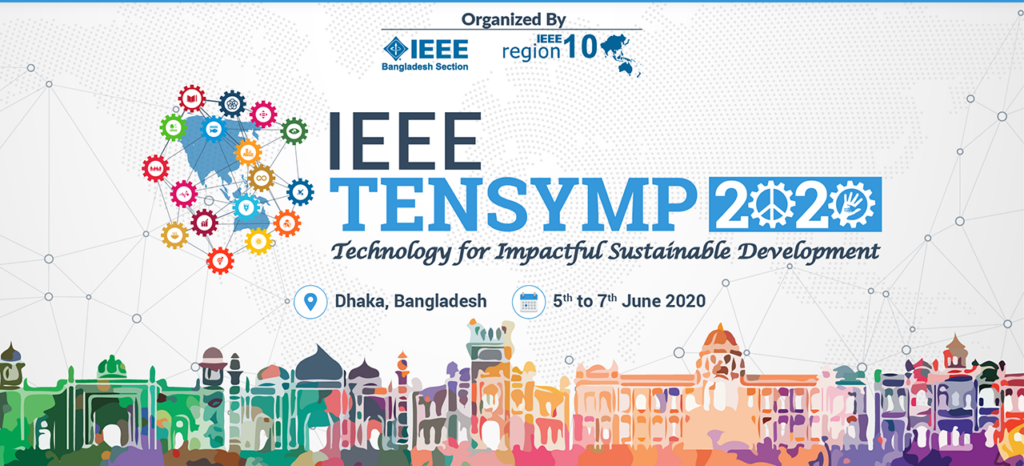
Three papers from our lab have been accepted by IEEE Region 10 Symposium TENSYMP 2020.
- A Complex Network Analysis of Inland Waterways Network of Bangladesh
- What Can Nighttime Lights Tell Us about Bangladesh?
- Does Electric Prepaid Meters Decrease Payment Delinquency? Evidence from Data-Centric Analysis of Electricity Consumption in Dhaka, Bangladesh
Congratulations to Firoza Tabassum, Humaira Islam, Muntasir Wahed, Redwan Ahmed Rizvee, Riddho Ridwanul Haque and Shourav Bin Rabbani.
2020

Dr Ibrahim Kholilul Rohman & Dr Moinul Zaber express their views on decision making priorities for the COVID-19 on Jakarta Post. Read the full article here.
2020

Data & Design Lab has collaborated with BRAC Technology to create a disaster management tool in response to covid-19. The tool will help BRAC and numerous other organizations monitor and plan aid activities. See the site in action at urbanslummap.brac.net.
2020

Dr. Moinul Zaber talked about use of BigData in policy making and career at CA Bhabon on 16th January, 2020. For details click here
2019

Dr. Moinul Zaber talked about Indonesian broadcasters in The Jakarta Post. Click here to read more.
2019

Md Abu Sayed attended an invited talk in EdTech Asia Summit 2019 at Singapore on 1-2 August, 2019 to present Education Research of Data & Design Lab.
2019

Dr. Moinul Zaber, has been appointed as a Visiting Associate Professor at CSIS of Tokyo University, Tokyo, Japan. He is currently in Japan (16th June-15th August, 2019) developing research projects related to use of heterogeneous data to understand urban mobility, spatial dimensions of urban educational poverty. Based on the findings of the project policy formulations will be prepared.
2019

DnD lab has joined with BRAC to build a robust Data Scientific environment at BRAC and BRAC International. BRAC, an international development organisation based in Bangladesh, is the largest non-governmental development organisation in the world, in terms of number of employees as of September 2016. Established by Sir Fazle Hasan Abed in 1972 after the independence of Bangladesh, BRAC is present in all 64 districts of Bangladesh as well as 13 other countries in Asia, Africa, and the Americas. We have started to look at BRAC’s Data with a goal of establishing a unique ID (UID) mechanism that will be useful enough to be used across programs. This is the prerequisite to establish data scientific capability and will empower BRAC to monitor and ascertain the impact of its programs on the individual beneficiaries. This is our second project after the first one we conducted last year to understand the nature of data, data quality and data policy.
2019

BIG data on Health:
Dr. Moinul Zaber presented his work on “Sources of Big Data in Health (a comparative description of national and international data sources and identification of new/emerging sources of data)” at International Conference on Big Data for Health held on 11-12 February, 2019.
2019

BIG data on Health:
Dr. Moinul Zaber presented his work on “Sources of Big Data in Health (a comparative description of national and international data sources and identification of new/emerging sources of data)” at International Conference on Big Data for Health held on 11-12 February, 2019.
2019

Pacific Telecommunications Council (PTC)
Dr. Moinul Zaber was a panel member at the Research Topical Session: World Coordination of 5G – What is at Stake for the Upcoming WRC-19? The program was held on Monday, 21 January, 2019 at Mid-Pacific Conference Center, South Pacific 2 PTC 2019. https://council.ptc.org/PTC/PTC19/online-program/Function_Display.aspx?EventKey=PTC19PROG&FunctionKey=RTS_WRC19
2019
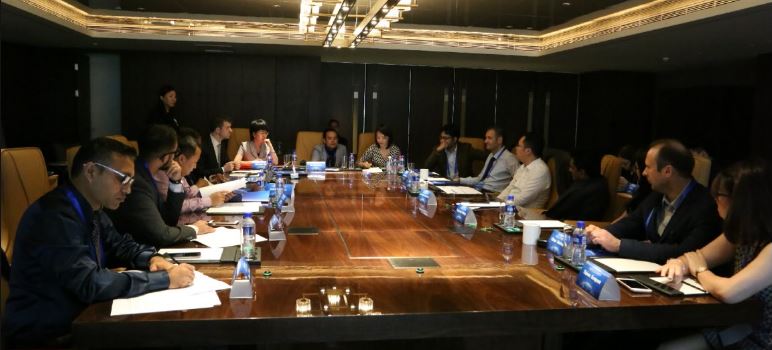
Dr. Moinul Islam Zaber, Director of Data & Design Lab was invited to One Belt One Road Federation Meeting, 2nd World Intelligence Congress (WIC 2018),Tianjin Municipal People’s Government, National Development and Reform Commission, Ministry of Science and Technology, Ministry of Industry and Information Technology, Cyberspace Administration of China, Chinese Academy of Sciences and Chinese Academy of Engineering, China Association for Science and Technology to present his research on “Importance and Challenges of using Data for Public Policy in Bangladesh : Notes on its evolution and challenges”. The conference was held in China on 16th May, 2018 to 19th May, 2018.
2018
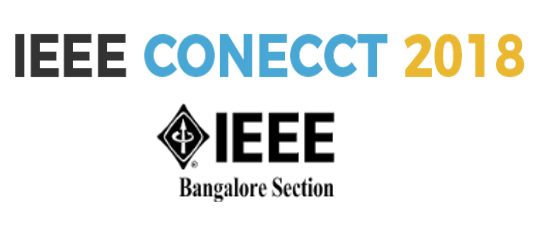
Traffic Pattern Analysis from GPS Data: A Case Study of Dhaka City has been accepted for the 2018 IEEE International Conference on Electronics, Computing and Communication Technologies (CONECCT)
2018
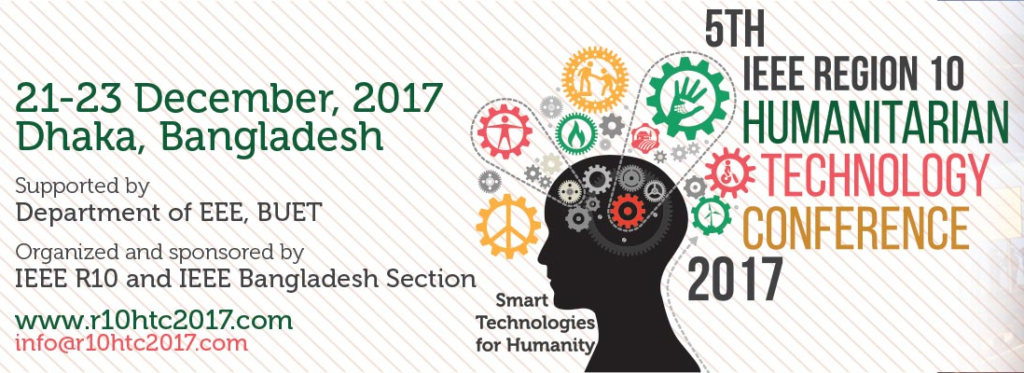
One of our research paper titled as “A smart grid prerequisite: survey on electricity demand forecasting models and scope analysis of demand forecasting in Bangladesh” won the BEST PAPER AWARD under Computer & Security Track at the IEEE Region 10 Humanitarian Technology Conference 2017 (R10-HTC), 21-23 December 2017, BUET, Dhaka, Bangladesh. Authors of this paper are Samiul Islam, Dr. Amin Ahsan Ali and Dr. Moinul Zaber.
2017

Rohan Samarajiva, founding Chair of LIRNEasia gave a talk on Big Data for Development at the University of Dhaka
2017

Dr. Vigneswara llavarasan from IIT Delhi, gave a talk on Big data for Governance at CSE 314, 14th October 2017. His brief profile is here: http://web.iitd.ac.in/~vignes/#seven
2017

Dr. Vigneswara llavarasan from IIT Delhi, gave a talk on Big data for Governance at CSE 314, 14th October 2017. His brief profile is here: http://web.iitd.ac.in/~vignes/#seven
2017

Submitted project report on “Enumerating the obstacles of accelerating the use of digital classroom: Lessons from Bangladesh” to UGC (University Grant Commission) in October 2017. The project was funded by UGC, Bangladesh.
2017

Moinul Islam Zaber presented paper that tries to find evidence of Broadband’s impact on quality of life, based on Swedish Data in TPRC (Telecommunications Policy Research Conference) conference in Washington, USA.
2017

Moinul Islam Zaber presented a paper on “Enumerating the obstacles of accelerating the use of digital classroom: Lessons from Bangladesh” in CPRsouth2017 in Yangon, Myanmar from 30th August to 1st September 2017
2017

Samiul Islam has attended CPRSouth Young Scholar Program and conference 2017 from 28th August to 1st September at the Inya Lake Hotel, Yangon, Myanmar as one of the 20 selected young scholars from the Asia Pacific and Africa. Main emphasize of the workshop were interactive and practical aspects of taking research to policy and how ICT can help.
2017

Dipankar Chaki Joy presented his paper on the Complex network in CPRsouth 2017 in Yangon, Myanmar.
2017

Md Abu Sayed attended EdTech Asia Summit 2017 in Ho Chi Minh City, Vietnam from July 29-30, 2017 to get the update on Education Technology initiatives in Asia. EdTech is working to build a community of Educational Technology Entrepreneur in Asia.
2017

The 9th China Cloud Computing Conference that was held on June 14-16 at China National Convention Center in Beijing, organized by Chinese Institute of Electronics. He was invited to join in for establishing the International Federation for Cloud Computing and Big Data during the Belt and Road Forum as a cooperation partner. He gave a talk on Big Data for development focusing the developing world.
2017

Moinul Islam Zaber presented paper on “A novel use of ICT to deliver just-in-time educational aid to help better learning for the school students in developing countries” in CPPsouth2016 in Zanzibar, Tanzania
2016
